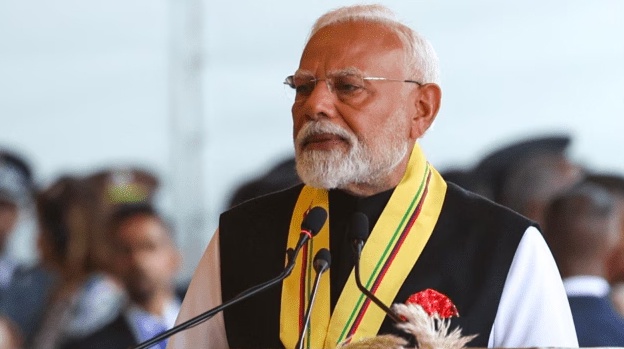Indian Prime Minister Narendra Modi is likely to visit the UK this week to sign a trade agreement.
Modi’s trip could be the first visit by an Indian prime minister to Britain since 2018 and marks the culmination of three years of trade negotiations.
The agreement is expected to expand trade relations between the two countries by £42.6 billion, making it the largest such agreement for Britain after Brexit and India’s first agreement with a European economy. Earlier, British Prime Minister Keir Starmer had planned a trip to India to sign the agreement.
Before the agreement can enter into force, it must be reviewed by the British Parliament and the Indian Cabinet.
Modi’s visit to the Maldives
In the second stage of his tour, the Prime Minister will visit the Maldives on a state visit on July 25-26 at the invitation of the President of the Republic of Maldives, Mohamed Muizzu. This will be Prime Minister Modi’s third visit to the island nation and, notably, the first visit by a head of state or government to the Maldives during President Muizzu’s presidency.
Prime Minister Modi will be the guest of honour at the celebrations marking the 60th anniversary of the independence of the Republic of Maldives, which will take place on 26 July.
During his visit, the Prime Minister will hold bilateral talks with Muizzu on areas of mutual interest and strategic co-operation.
The leaders of the two countries will also discuss the implementation of the Joint Concept of India and the Maldives on “Comprehensive Economic and Maritime Security Partnership,” which was developed during President Muizzu’s visit to India in October 2024.
This visit underscores India’s commitment to its maritime neighbour and reaffirms the Maldives’ key role in India’s Neighbourhood First policy and broader MAHASAGAR vision. The visit is expected to give new impetus to the growing partnership between the two countries and further strengthen their long-standing ties.
India and the UK agreed on a landmark trade deal in May, cutting tariffs on cosmetics, vehicles, alcoholic beverages and other goods, as both sides seek to minimise the potential damage from US President Donald Trump’s protectionist policies.
